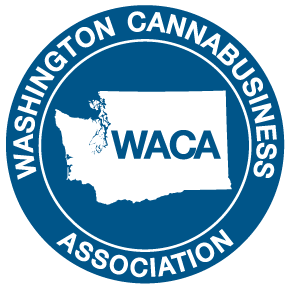A Plan for Pesticides: Protecting Consumer and Patient Safety
The Washington CannaBusiness Association (WACA) represents the regulated cannabis industry in Washington State and is a leader in supporting policies that prioritize patient and consumer safety. As industry and public concern has increased regarding the use of pesticides in the cannabis marketplace, WACA’s Board of Directors has led membership in a conversation to develop insights and counsel from within the licensed industry to offer elected officials and regulators. The resulting recommendations directly address issues such as pesticide testing, compliance procedures, cost, and safety, among others.
WACA recognizes the challenges of establishing a safe, regulated cannabis marketplace and is fully engaged in working with other licensed businesses in the industry and elected and community leaders to ensure policies that address pesticide use prioritize safety, testing and quality-control. In a fully-regulated marketplace, it is also important to ensure that legal, licensed businesses (whether they are WACA members or not) who are in compliance with state law are not “tarred with the same brush” as unlicensed, unregulated businesses who continue to profit in the gray or black marijuana market. The current focus on pesticide use and testing is an opportunity and an obligation to propose solutions that prioritize consumer safety and are workable for the industry.
In conversations with elected officials in Olympia and policymakers for the Liquor and Cannabis Board (WSLCB), WACA has identified the main challenges that its membership faces on this issue and has offered solutions for consideration to strengthen the regulated, licensed system.
Challenges
- Lack of consistency in lab testing results and standards
- Lack of a regulatory authorities that are motivated to properly certify labs to provide accurate pesticide analysis results
- Zero threshold testing limits
- Public/industry that is generally uninformed about the hazards and intricacies of pesticides and exposure from other sources such as food crops
- WSLCB has authority to collect samples but is understaffed and imposing new, expensive testing measures would be futile
Proposed Solutions
- Support continued robust random testing by LCB.
- Create uniform regulations for labs testing product. The Liquor and Cannabis Board and Department of Health should work with the Washington State Department of Agriculture to establish a lab certification and proficiency testing program to ensure that labs can accurately detect prohibited pesticides. False positives and negatives should concern everyone – regulators, businesses, consumers and patients.
- Review how the United States Department of Agriculture manages pesticides in administering the National Organic Program. For Certified Organic products some pesticides are permitted and even for prohibited pesticides, allowances are made if detected at low enough limits due to the challenges of cross-contamination and the persistence of some substances unintentionally introduced.
- Support Action Levels for prohibited pesticides rather than “zero” tolerances. This provides liability protection to the system, creates a science-based system for protecting consumer safety and potentially minimizes errors that could be introduced by labs.
- Support a “disclosure upon request” model so that any consumer or interested party can find out which pesticides, if any, have been applied to the product in question. This disclosure could be in a variety of formats including a card provided to the consumer or a URL that the consumer can easily access in order to get the information. WACA does not support requiring inclusion of this information on already crowded product labels.
